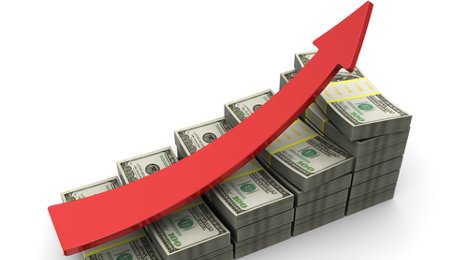Outstanding Auto Loans at Highest Point in 5 Years

By subscribing, you agree to receive communications from Auto Remarketing and our partners in accordance with our Privacy Policy. We may share your information with select partners and sponsors who may contact you about their products and services. You may unsubscribe at any time.
ATLANTA –
According to the latest Equifax National Consumer Credit Trends Report, the total number of outstanding auto loans year-to-date in November came in at more than 70.0 million, the highest level in more than five years.
That amount of paper in finance company portfolios as of November pushed outstanding balances 9.6 percent higher year-over-year to $965.0 billion.
Meanwhile, Equifax reported that auto loan serious delinquencies — defined as loans 60 days or more past due — stood at 1.04 percent in November as a share of balances, representing a decrease from 1.15 percent from the same time a year ago.
Analysts determined the total number of new auto loans originated between January and September climbed to 19.2 million, an increase of 4.7 percent versus the same period a year ago. During that same timespan, Equifax pointed out the total balance of new credit originated was $391.6 billion, an increase of 7.0 eprcent.
Looking beyond just auto financing, Equifax determined non-mortgage credit balances in November totaled $3.1 trillion, the highest level in more than five years.
Besides gains in the auto market, year-over-year balance increases included:
Subscribe to Auto Remarketing to stay informed and stay ahead.
By subscribing, you agree to receive communications from Auto Remarketing and our partners in accordance with our Privacy Policy. We may share your information with select partners and sponsors who may contact you about their products and services. You may unsubscribe at any time.
• Retail-issued credit cards: up 4.8 percent to $71.0 billion
• Bank-issued credit cards: up 4.7 percent to $611.7 billion
In addition, Equifax highlighted the total balance of non-mortgage write-offs year-to-date for November was $73.4 billion, the second-lowest level in eight years.
Similarly, the total balance of home-finance write-offs year-to-date in November was $91.2 billion, also the second-lowest level in eight years.
"The Great Deleveraging has clearly ended and U.S. consumers are back in the borrowing business, but how they borrow has greatly changed from prior to the Great Recession," said Amy Crews Cutts, senior vice president and chief economist at Equifax.
“Today, while auto loans make up 30.9 percent of non-mortgage consumer debt — just as they did in December 2007 at the recession’s start — student loans have grown from 20.2 percent to a whopping 37.3 percent and bank- and retailer-issued credit cards are down to 21.9 percent of consumer debt from 31.4 percent.”
Cutts continued, “One way to read this change is that consumers now value investment (in their education and durable goods like cars) over immediate consumption, which is good for our economy over the long run.
"But, with the exception of new-car production, sluggish consumption slows economic growth in the short-term, partially explaining the slower-than-hoped-for economic recovery,” she went on to say.


